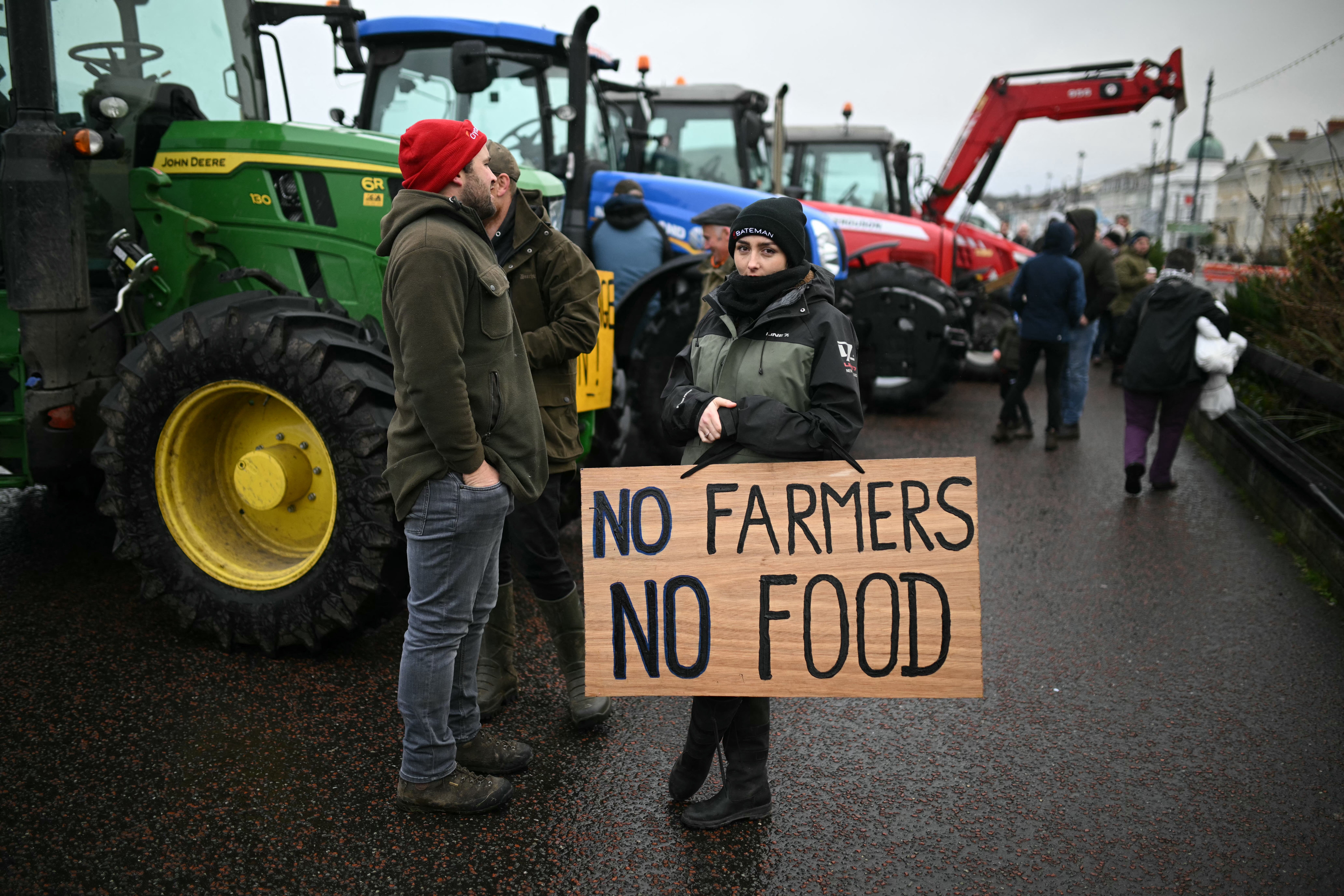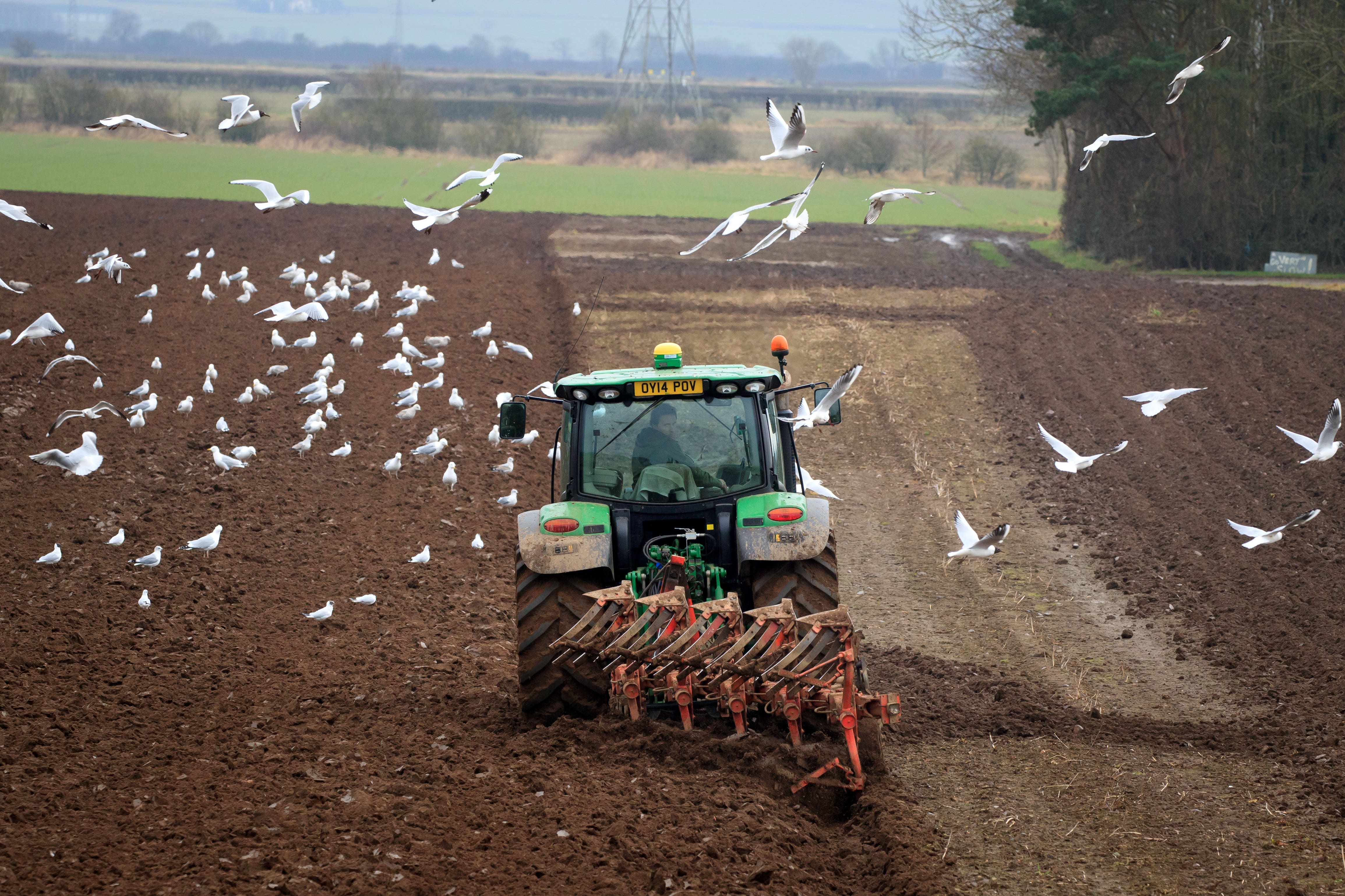[ad_1]
Farmers are preparing for their biggest protest so far over the government’s proposals to include them in inheritance tax, as they prepare to gather in Westminster on Tuesday.
In the weeks since chancellor Rachel Reeves’s announcement, farmers and their representatives have been lobbying hard to have the inheritance tax decision overturned.
The government wants farmers to pay the tax on assets above £1m apiece at a reduced rate of 20 per cent.
The allowance comes on top of the £500,000 a typical homeowner gets if they leave their home to their children or grandchildren, so a married couple can shelter up to £3m from HMRC, a sum which will exclude most farms.
Groups including the Liberal Democrats have suggested up to 70,000 farms could be hit, although this number assumes a limit of £1m for tax-free inheritance rather than £3m.
The government claims that the biggest 500 farm estates in the UK will pay the tax per year, with smaller farms “not affected”, and independent analysis by Dan Neidle, a tax expert, suggests that as few as 100 per year will be captured.
But inheritance tax is incredibly unpopular, and farmers who have staff to consider will also have to grapple with higher employers’ national insurance bills, since Ms Reeves wants to lower the threshold at which it is paid.
“They’re pretty angry,” says Sam Dewes, a wealth manager whose clients include farmers at HW Fisher.

And the maths favours married couples, which many say is unfair. Indeed, being married on the average farm makes all the difference.
According to estate agent Carter Jonas, average arable land is priced at £9,667 per acre, while pasture for grazing goes for £7,833.
The average English farm had a size of 87.9 hectares, or 217 acres in 2023, according to government figures. For a mixed farm of half arable and half pasture, this values an average-sized farm at £1.9m for land, excluding buildings and equipment, placing it under the limit for a couple.
But for a single farmer who has divorced or never married, at least £400,000 will be outside the free allowance, costing £80,000 for their heirs.
There are ways around paying, says Mr Dewes.
The easiest is to give the business away. Working farmers concerned about the tax can gift their farms to their offspring – or whoever they like – and not pay any tax so long as they live another seven years.
In practice, this means retiring from the business, which some might find difficult.
“To the extent they’re still working on it, they want to be able to still make all the decisions and call the shots, and once they’ve given things away, it becomes much harder to do that, because it’s no longer your thing,” says Mr Dewes.
A feeling that you need to be married or able to accurately predict your own death to avoid the tax is probably the biggest source of unhappiness for many farmers, even if they are not caught up in the tax, he says, since these circumstances seem unrelated to farming or fairness.
“The people who can be worse affected, which is probably the saddest thing about the new rules, would be someone who, say, is unmarried and dies aged 50, before they’ve had a chance to pass everything on whilst they’re still very much actively working on the farm.”

Another option for farmers is to put the farm into a trust, although this costs money and is still liable to tax, albeit at a regular trickle rather than a single balloon payment on death.
But there could be a silver lining for family farmers in other ways.
In 2018, Farmers Weekly reported that buyers other than farmers outnumbered farmers in buying farmland for the first time.
Now, according to data from Strutt & Parker, farmers account for just 31 per cent of land sales in the first nine months of this year, down from 68 per cent in 2008.
Investors, the wealthy and so-called lifestyle buyers who want the land for leisure have been crowding out farmers and pushing up land prices for some time. If the benefit of avoiding inheritance tax evaporates, they may be less keen to buy, lowering the price of land.
Cheaper land is good news for farmers expanding their businesses and it also means breaching the £1.5m or £3m barrier is harder to do.
If the government wants to gather tax from the wealthy who are using farmland as a tax dodge and protect working farmers, then it could carry on with its plan but only trigger the tax on a sale, says Mr Dewes.
“I think in general, that element of the policy is not something which people are too upset about.”
That way, working farmers could carry on without paying the tax, while those hoping to sell out will only have to pay when the sale is completed and they have money to do so.
[ad_2]
Source link



